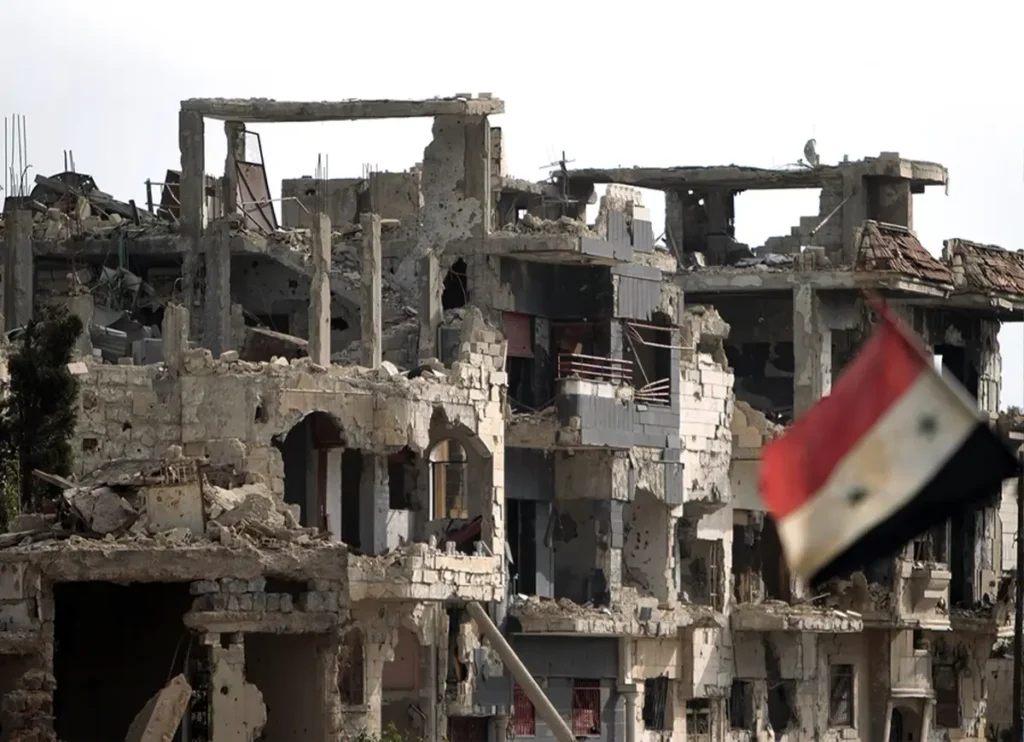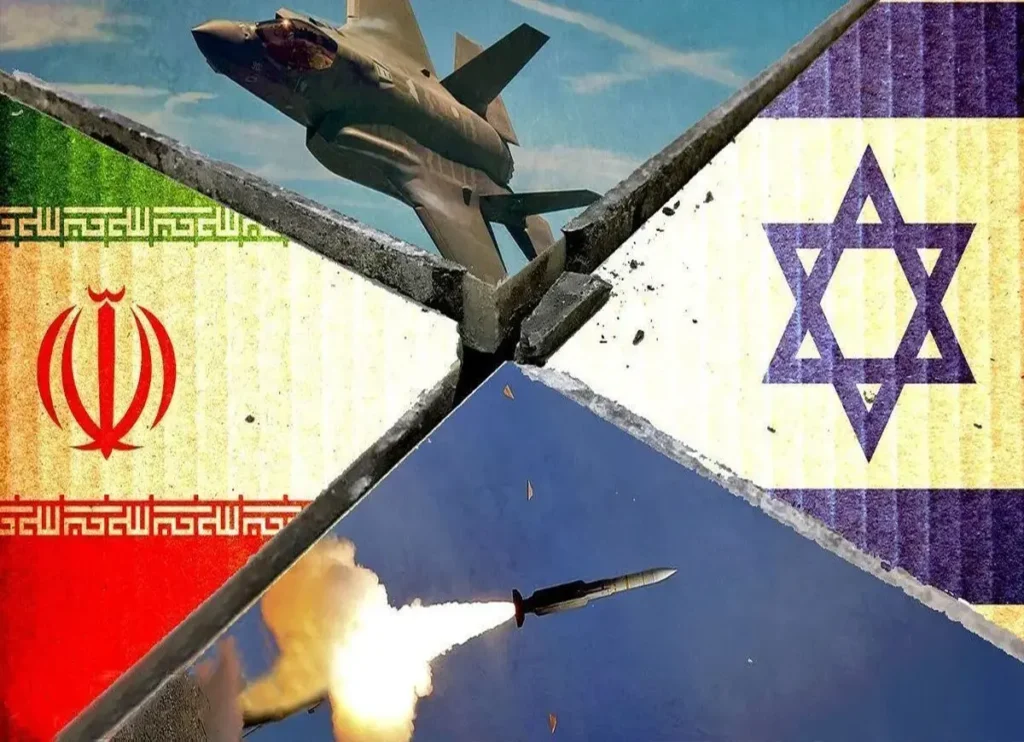Statement by the Azerbaijan Democracy and Development Association (ODJAQ) on the Threats of Armed Kurdish Groups and the Risk of Power Vacuum Exploitation in West Azerbaijan During the Transition Period
Iran is on the threshold of one of the most important and critical moments in its contemporary history. The wave of geopolitical changes in the region, especially the reciprocal military strikes between Israel (and the United States) and the Islamic Republic of Iran, has severely weakened the military and intelligence structure of the Islamic Republic and has practically paralyzed the regime in many areas. This situation has increased the likelihood of the Islamic Republic’s collapse more than ever before and has naturally shifted attention toward the transition period and Iran after the Islamic Republic.
A historic opportunity is emerging to move from an authoritarian regime toward a democratic, decentralized (federal) system based on sustainable development and the elimination of discrimination. However, this transition period also faces serious threats. Among them is the danger posed by armed groups seeking to exploit the power vacuum to implement projects of occupation, expansionism, and ethnic cleansing (according to the Syrian model), projects that target the peace and historical coexistence of the region’s peoples.
The experiences of Syria and Iraq have shown how, in conditions of power vacuum, the possibility of territorial occupation, ethnic cleansing, and the imposition of ethnic and tribal dominance is created for armed groups in the region. In Syria, armed groups affiliated with the PKK, under the guise of “defending the Syrian Kurdish people,” occupied one-third of the country’s territory through extreme violence, ethnic cleansing, and child soldier recruitment. This was while the composition of their militias consisted largely of citizens of Turkey, Iraq, and Iran rather than the native population.
Given the worrying signs of similar threats in certain regions of Iran, especially West Azerbaijan, we, as a democratic organization committed to a future based on peace, development, and justice, explicitly declare the following points:
- The end of the Islamic Republic and the historic opportunity for a democratic transition must not result in a legal and security vacuum that turns into a playground for occupation and ethnic cleansing projects. The presence and activities of armed groups seeking to exploit the power vacuum after the collapse of the Islamic Republic to push Syria-style projects are a serious threat to the existence of Iran as well as to the stability and security of the people of West Azerbaijan. While the linguistic and religious diversity of Iran and the denial of the rights of non-Persian peoples over the past century are undeniable realities, the solution to this injustice is not to “turn Iran into Syria.” The elimination of linguistic, gender, ethnic, and class discrimination can only be achieved through democracy, a decentralized structure, rule of law, and a system accountable to the will of voters. The failure of the Islamic Republic is not due to its inability to control armed groups but rather to its lack of adherence to the will of the people in governing the country. Iran without a government capable of establishing order will not become a better society. What our country needs is a lawful order bound to the will of the people, not a situation in which existing order is destroyed by territorial claims. Planning for the entry of armed groups into the cities of Azerbaijan during a power vacuum means plunging the region into a hell from which there will be no way out. Undoubtedly, the region’s developmental backwardness and its residents, with their diverse ethnic and religious identities, will be the primary victims of this adventurism.
- Given the bitter experiences of the early days after the 1979 Revolution and its long-term consequences, the people of West Azerbaijan, including both Turks and Kurds, know better than anyone that territorial claims by armed groups are, first and foremost, a betrayal of the anti-discrimination struggles of Turkish and Kurdish peoples, playing into the hands of those who seek to perpetuate discrimination and frame these struggles as a threat to national integrity. Iran’s administrative divisions, currently consisting of 31 provinces, were not designed based on linguistic or religious borders. Previous experiences of changing provincial and county borders, even in the absence of linguistic or religious disputes, testify to the disastrous consequences of such actions. Therefore, any attempt to change provincial borders or even promote such demands under current conditions is irresponsible and catastrophic. These kinds of actions serve the Islamic Republic’s scenario of presenting “the danger of partition and civil war” as “a greater evil than the Islamic Republic.” The activation of such projects whenever signs of weakness appear in the pillars of the Islamic Republic has practically strengthened the regime, as a large part of society justifiably fears insecurity, disorder, and the emergence of armed gangs.
- Changing the names of provinces and publishing new maps by armed or even non-armed movements, such as the announcement by the Democratic Party of Iranian Kurdistan naming five provinces as “Kurdistan Provinces,” is an expansionist, provocative, legally baseless, and divisive act. We emphasize that calling the cities of West Azerbaijan “Kurdistan” as the first step in a four-stage project to transform these regions into “disputed territories,” then militarily occupying them, and finally initiating a process to legitimize the ownership of occupied areas, is unacceptable. We strongly condemn these provocations. The failure of Armenia’s similar project in Azerbaijan’s Karabakh region also demonstrated that even with international support, such plans will not succeed. It should also be recalled that the above-mentioned four-stage scenario advanced as far as the third stage (military occupation of one-third of Syria’s territory) in Syria. Reports by human rights organizations such as Amnesty International have documented the occupation and ethnic cleansing carried out by the PKK (under various names) in Syria under slogans such as democracy and equality. Interestingly, such reports have never been reflected in the media of those who are planning to “Syrianize” Iran.
- Our solution to the claims and disputes over provincial borders is that the current administrative divisions (existing provincial borders) must be maintained until a new national agreement and democratic constitution are reached. Any possible changes in the future must take place only in a democratic environment and based on defined legal frameworks and national consensus. Naturally, these structures will serve as the reference for addressing all similar disputes and grievances across the country. Undoubtedly, the collective and ethnic rights of minorities residing in every province must be respected.
- To the people of Iran and the democratic forces: The issue of territorial claims and the threats of armed Kurdish groups regarding the cities of Azerbaijan and similar cases elsewhere in the country, given the negative impact this has on people’s hope for the future, on the struggle against the regime, and on the potential transition period, is not merely a regional issue but one that concerns the entire country. The ignition of conflict in one region will most likely spread to other areas as well. Although Persian-language media have failed to adequately reflect the atrocities and crimes of armed groups claiming to represent democracy in Syria and Iraq, we expect the intellectual community and civil society activists throughout Iran to take responsibility for this matter and raise public awareness. We urge political figures and groups to fulfill their historical and humanitarian responsibilities and to take a stance and act to prevent the repetition of these outdated adventures before it is too late.
The Azerbaijan Democracy and Development Association (ODJAQ) has made this issue a top priority due to its vital importance. The members and leadership of ODJAQ, repeatedly both before its founding, including in the historic July 2020 statement “Don’t Shoot at People’s Aspirations” and after its official establishment, have used every opportunity to call for dialogue and warn these armed groups, demanding an end to their claims and threats. It must be stressed that none of these calls, warnings, or recommendations should be seen as a sign of weakness or fear. We are fulfilling our political and human responsibility to prevent war, ensure a low-cost transition from the Islamic Republic, and achieve democracy and development for all the people of Iran.
Needless to say, the historic gathering of the people of Urmia on March 22, 2025, demonstrated that the people of Azerbaijan, regardless of their political or religious beliefs, are aware and united in defending their security and future against threats. ODJAQ confidently declares that the people of Azerbaijan, with their own alternatives, are ready to confront any possible actions by these groups, and that any opportunism or adventurism in the event of a power vacuum will be met with a decisive response by the people of Azerbaijan.
Once again, we emphasize that the only sure way to transition from the Islamic Republic and manage the transition period is to avoid divisiveness and discouragement, to strengthen national solidarity while preserving diverse unity among all the peoples of Iran, and to reach an understanding among democratic political forces within the framework of democratic federalism, secularism, and rule of law for Iran’s future.Azerbaijan Democracy and Development Association (ODJAQ)
July 2025


